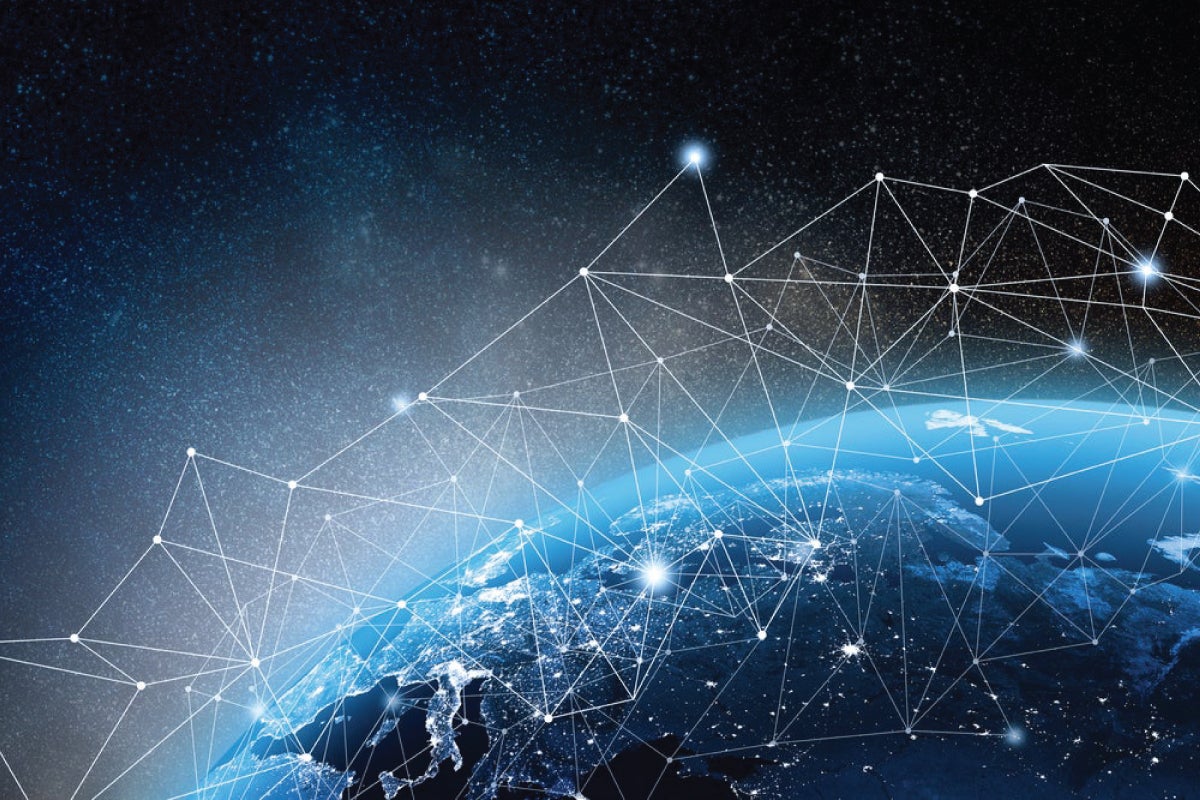Gartner: Top strategic technology trends for 2024

AI and intelligent application-development trends will impact the enterprise the most in 2024, says research firm Gartner, which unveiled its annual look at the top strategic technology trends that organizations need to prepare for in the coming year.
“A lot of the trends are around AI development, but also in protecting the investment that organizations have already made. For example, they’ve invested in machine learning, natural language. And there’s a ramp up in software engineering right now where people are building more things because they have access to that data and the development tools are getting better,” said Chris Howard, distinguished vice president analyst and chief of research, during his presentation of this year’s trends list at Gartner’s flagship IT Symposium/Xpo conference in Orlando, Florida.
Deriving business value from AI and other investments requires a disciplined approach to adoption and close attention to risks, Howard said. “With the unrelenting interest and increased investment in all things AI, the pressure is on enterprises to actually make this stuff work,” Howard said.
Gartner’s top strategic technology trends for 2024 are:
Democratized generative AI
“Generative AI (GenAI) is becoming democratized by the confluence of massively pretrained models, cloud computing and open source, making these models accessible to workers worldwide,” Gartner stated. By 2026, more than 80% of enterprises will have used GenAI APIs or models or deployed GenAI-enabled applications in production environments, up from less than 5% in 2023, according to the firm.
GenAI applications can make vast sources of internal and external information accessible to business users, which will significantly democratize knowledge and skills in the enterprise. Large language models let enterprises connect their workers with knowledge in a conversational style with rich semantic understanding.
AI trust, risk and security management
The democratization of access to AI has made the need for what Gartner calls AI trust, risk and security management (TRiSM) more urgent.
“Without guardrails, AI models can rapidly generate compounding negative effects that spin out of control, overshadowing any positive performance and societal gains that AI enables. AI TRiSM provides tooling for ModelOps, proactive data protection, AI-specific security, model monitoring – including monitoring for data drift, model drift, and/or unintended outcomes – and risk controls for inputs and outputs to third-party models and applications,” Gartner stated.
Gartner predicts that by 2026, enterprises that apply AI TRiSM controls will increase the accuracy of their decision making by eliminating up to 80% of faulty and illegitimate information.
AI-augmented development
“AI-augmented development is the use of AI technologies, such as GenAI and machine learning, to aid software engineers in designing, coding and testing applications. AI-assisted software engineering improves developer productivity and enables development teams to address the increasing demand for software to run the business. These AI-infused development tools allow software engineers to spend less time writing code, so they can spend more time on more strategic activities such as the design and composition of compelling business applications,” Gartner stated.
Intelligent applications
“Intelligent applications include intelligence – which Gartner defines as learned adaptation to respond appropriately and autonomously – as a capability. This intelligence can be utilized in many use cases to better augment or automate work. As a foundational capability, intelligence in applications comprises various AI-based services, such as machine learning, vector stores and connected data. Consequently, intelligent applications deliver experiences that dynamically adapt to the user,” Gartner stated.
In a survey of CEOs and senior business executives, 26% cited the talent shortage as the most damaging risk for their organization. Attracting and retaining talent is CEOs’ top workforce priority, while AI was named the technology that will most significantly impact their industries over the next three years, Gartner reported.
Augmented-connected workforce
“The augmented-connected workforce (ACWF) is a strategy for optimizing the value derived from human workers. The need to accelerate and scale talent is driving the ACWF trend. The ACWF uses intelligent applications and workforce analytics to provide everyday context and guidance to support the workforce’s experience, well-being, and ability to develop its own skills,” Gartner stated.
Through 2027, 25% of CIOs will use augmented-connected workforce initiatives to reduce time to competency by 50% for key roles, the firm reported.
Continuous threat exposure management
AI plays a role here as well, according to Howard. The use of AI to protect an organization, as well as to spot threat patterns, helps protect the investments organizations have made. “When you do this, we’ve discovered that you’re three times less likely to suffer from a breach because you have a very agile approach to protection,” Howard said.
Gartner stated: “Continuous threat exposure management (CTEM) is a pragmatic and systemic approach that allows organizations to evaluate the accessibility, exposure and exploitability of an enterprise’s digital and physical assets continually and consistently. Aligning CTEM assessment and remediation scopes with threat vectors or business projects, rather than an infrastructure component, surfaces not only the vulnerabilities, but also unpatchable threats.”
Machine customers
Gartner defines machine customers, which are also called ‘custobots,’ as nonhuman economic actors that can autonomously negotiate and purchase goods and services in exchange for payment. “By 2028, 15 billion connected products will exist with the potential to behave as customers, with billions more to follow in the coming years. This growth trend will be the source of trillions of dollars in revenues by 2030 and eventually become more significant than the arrival of digital commerce. Strategic considerations should include opportunities to either facilitate these algorithms and devices, or even create new custobots,” Gartner stated.
Sustainable technology
The use of sustainable technologies will become so important, Gartner predicts that by 2027, 25% of CIOs will see their personal compensation linked to their sustainable technology impact.
“Sustainable technology is a framework of digital solutions used to enable environmental, social and governance (ESG) outcomes that support long-term ecological balance and human rights. The use of technologies such as AI, cryptocurrency, the Internet of Things and cloud computing is driving concern about the related energy consumption and environmental impacts. This makes it more critical to ensure that the use of IT becomes more efficient, circular and sustainable,” Gartner stated.
Platform engineering
Gartner defines platform engineering as the discipline of building and operating self-service internal development platforms. Each platform is a layer, created and maintained by a dedicated product team, designed to support the needs of its users by interfacing with tools and processes.
The goal of platform engineering is to optimize productivity, improve the user experience, and accelerate delivery of business value.
“Think about all of the stuff that I’ve talked about and imagine that you are a technician on an airport tarmac fixing a complicated problem that you’ve never seen before,” Howard said. “You get knowledge from schematics. You get knowledge from standard operating procedures. You get knowledge from other people that have seen and fixed this problem. You get knowledge from the device itself through IoT and sensors and data coming into that environment. Imagine that digital experience for that employee if you can help them solve a problem they’ve never seen before, using generative AI to query the systems and bring stuff back. Or to use mixed reality to actually bring them immersively into that experience, and to use it to fix the problem. That’s where I see this going,” Howard said.
Industry cloud platforms
By 2027, Gartner predicts more than 70% of enterprises will use industry cloud platforms (ICPs) to accelerate their business initiatives, up from less than 15% in 2023. “ICPs address industry-relevant business outcomes by combining underlying SaaS, PaaS and IaaS services into a whole product offering with composable capabilities. These typically include an industry data fabric, a library of packaged business capabilities, composition tools and other platform innovations,” Gartner stated.
Next read this:
READ MORE HERE



